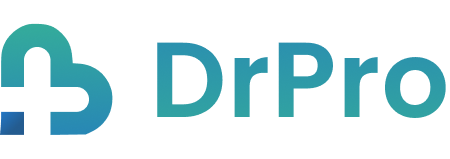Managing a pharmacy is a challenging task. Pharmacists handle multiple responsibilities every day, such as dispensing prescriptions, managing stock, billing customers, and maintaining accounting records. These days, almost all of them are done manually, a pharmacy owner would be at a loss to name one task that does not need a pen and paper register system. However, with new and evolving technologies, many pharmacies are adopting a Pharmacy Management System in order to optimize and streamline daily activities.
In this blog, we shall check out the contrasts between manual billing and the Pharmacy Management System and explain why modern pharmacies prefer digital systems.
What is a Pharmacy Management System?
The Pharmacy Management System features a suite of software tools that assist pharmacists in managing sales, billing, inventory, suppliers, and prescriptions, thereby reducing the likelihood of human error and enhancing process efficiency.
It also integrates with other healthcare systems for patient records and prescription availability.
What is Manual Billing in a Pharmacy?
This term implies the manual preparation of invoices into registers or on printed slips. Stock-checking is done manually, while calculations are done using calculating machines. Manual billing, though apparently simple, consumes a lot of time and energy, and is prone to error.
Limitations of Manual Billing
- Time-consuming – Every entry must be written by hand.
- High error risk – Wrong calculations or missed entries are common.
- No real-time stock updates – Pharmacists don’t know exact stock levels.
- Difficult record-keeping – Searching for past bills takes a lot of time.
- Limited scalability – As sales increase, manual billing becomes harder to manage.
📲 Follow us on Facebook, Instagram, Twitter, App Store, IOS Store, LinkedIn & YouTube for more wellness tips!
Advantages of a Pharmacy Management System
- Faster billing – Bills are generated within seconds.
- Accurate calculations – The software reduces human errors.
- Real-time stock tracking – Automatically updates when sales are made.
- Data security – Records are stored digitally and safely.
- Integration with suppliers – Makes restocking easier.
- Reports and analytics – Owners can check sales, profits, and inventory trends.
- Customer satisfaction – Patients get faster service with fewer mistakes.
Pharmacy Management System vs. Manual Billing
1. Billing Speed
Manual Billing: Takes 3 to 5 minutes per customer.
Pharmacy Management System: Takes hardly a minute per customer.
2. Accuracy
Manual Billing: Prone to errors in calculation.
Pharmacy Management System: Guarantees billing accuracy and reliability.
3. Inventory Tracking
Manual Billing: Requires physical verification of the stock.
Pharmacy Management System: Tracks stock in real time.
4. Data Storage
Manual Billing: Records are maintained in files or registers that may get misplaced.
Pharmacy Management System: Stores all data digitally, with options for backup.
5. Scalability
Manual Billing: Can only work for smaller pharmacies with fewer customers.
Pharmacy Management System: Caters to larger pharmacies with more customer flow.
Why Modern Pharmacies Prefer a Pharmacy Management System
- Reduction of work assigned to pharmacists.
- Avoidance of financial losses due to billing errors.
- Better compliance with government regulations.
- Enable pharmacies to spend more time on customer care rather than paperwork.
- Enable pharmacies to scale up with intelligent analytics and reports.
Future of Pharmacy Management Systems
Further improvements will be infused into these systems in the future with:
- AI integration for sales predictions.
- Cloud access with data security.
- Integration with the ABHA Health ID and digital health platforms.
- Enhanced supplier and patient history management tools.
Conclusion
Manual billing adequately works in a very small pharmacy; after the customer volumes rise, it becomes slow, error-prone, and difficult to manage. A Pharmacy Management System saves time and induces accuracy, efficiency, and satisfaction for the customer.
Pharmacies, to guarantee their future, should opt for a modern digital system instead of manual, archaic methods.
FAQs
Q1. What is a Pharmacy Management System?
It is software that manages billing, inventory, and prescriptions in a pharmacy.
Q2. Why is manual billing not efficient?
It is slow, error-prone, and makes record-keeping difficult.
Q3. Can a Pharmacy Management System track stock automatically?
Yes, it updates stock levels in real time after every sale.
Q4. Is a Pharmacy Management System expensive?
No, many affordable options are available, and it saves money in the long run.
Q5. Does digital billing improve customer satisfaction?
Yes, customers get faster service and accurate bills.


